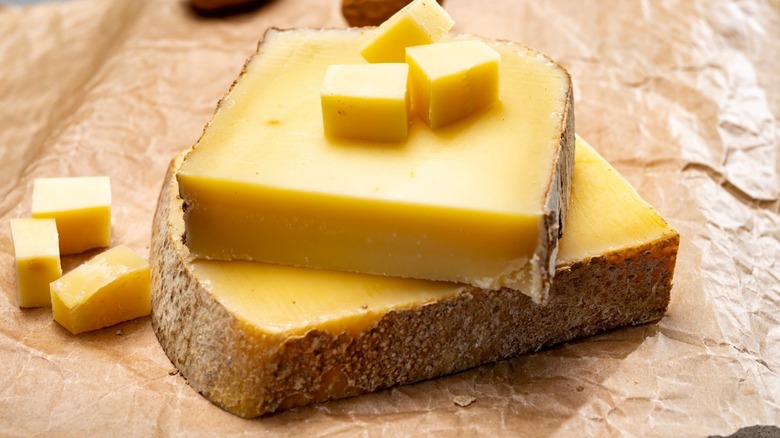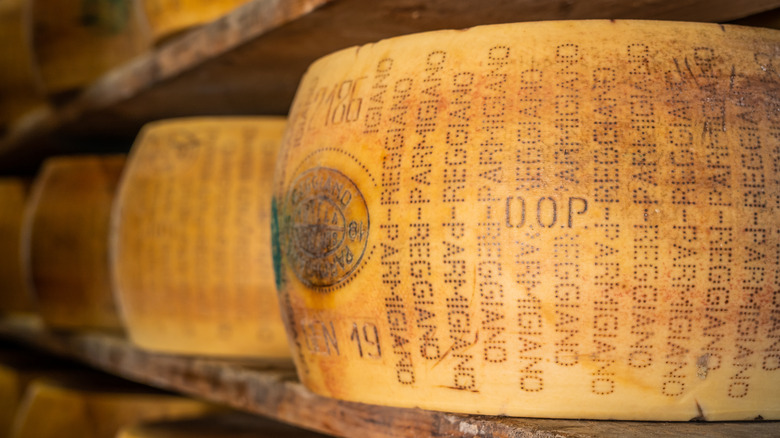Why Your Cheese Rinds Could Soon Have Tracking Devices
There might be an impostor hiding under a familiar name in your cheese drawer: parmesan cheese. This parmesan is different from Parmigiano Reggiano, and the problem goes deeper than those green jars of pre-grated cheese that you should think twice before getting. In fact, cheese that's marketed as true Parmigiano-Reggiano but actually does not qualify for that legally protected name is a big problem — and the cheese authorities are cracking down.
Fraudulent parm is almost as big an industry as the real thing: €2.35 billion ($2.24 billion) for name-protected cheese compared to about $2 billion for the fake stuff, Food Navigator reports. The situation had gotten so bad by 2014 that, as Italian farmers' organization Coldiretti pointed out, more imitation cheese was produced in a year than real (via European Parliament).
For the Parmigiano Reggiano Consortium, which regulates the legal standards that Parmigiano Reggiano must follow, this is a significant concern. Since 2002, a unique code has been stamped on every wheel of Parmigiano Reggiano to help with tracking efforts, per Packaging Europe. "Parmigiano Reggiano is one of the world's oldest and most famous cheeses, and it is a product that symbolizes Italian produce," said Nicola Bertinelli, the president of Parmigiano Reggiano Consortium, said in a news release (via PR Newswire).
Now, Bertinelli said, digital technology is helping the consortium upgrade their efforts to identify and track certified Parmigiano-Reggiano — by implanting small tracking devices into the rinds of massive wheels of the cheese.
Trackers are meant to protect true Parmigiano Reggiano
In order to legally be called Parmigiano Reggiano instead of the Americanized parmesan, the cheese must be made in the Emilia-Romagna region of northern Italy and aged for more than a year under close regulatory oversight (via Eataly). To help safeguard true Parmigiano-Reggiano cheese and separate it from imitators that don't meet these strict standards, the Parmigiano Reggiano Consortium is piloting tracking devices implanted into a label on the cheese's rind, per Food & Wine.
The tracker is smaller than a grain of salt and can be scanned for matches on a blockchain registry, per Thrillist. And don't put on your tin-foil hats — the transponders are completely food safe and embedded into existing rind labels that are made from casein, a naturally occurring milk protein, Food & Wine reports. The Consortium is partnering with the Dutch company Kaasmerk Matec, which has been manufacturing casein cheese labels since 1920, per its website.
After years of testing, the Consortium's test run is starting small with trackers in 100,000 wheels this year; for context, this is about 2.5% of the nearly four million wheels produced in 2020 (via ParmigianoReggiano.com). After this season, they'll decide whether to expand the project to all wheels produced, per Food & Wine. In the meantime, make sure to look for true Parmigiano-Reggiano. It's expensive, but it's worth it.

